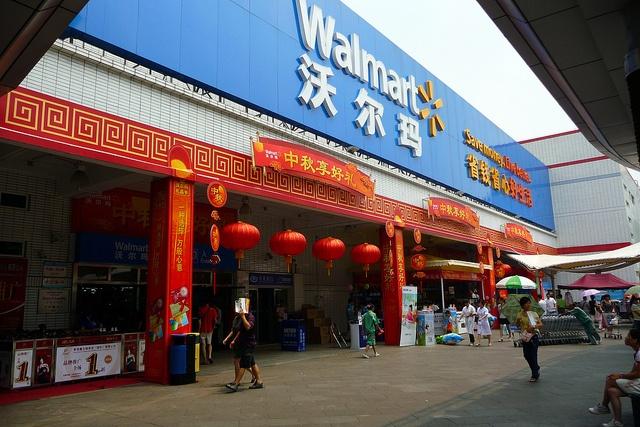
Walmart pegs its future growth on the sales from stores in China, but glimpses into those outlets’ recent financial performance suggests such hopes are disappearing.
Much of Walmart’s struggles can be attributed to China’s cooling economy and fickle consumers who found that Walmart’s offerings did not necessarily match their tastes. But food contamination scandals, such as the 2011 pork mislabeling fiasco and the tainted donkey meat scare that rocked the company almost three years ago, significantly contribute to the challenges the world’s largest retailer confronts in the world’s most populous country.
To that end, Walmart announced this week that it will invest at least $25 million in food safety research. The retailer promised to revamp its supply chain while assuring nervous customers that its food products are safe.
The company’s corporate headquarters and its foundation, along with IBM and Beijing’s Tsinghua University, will partner together to improve food authentication systems and the tracking of the company’s supply chain. Much of the focus will be on the safety of poultry, 12.7 million tons of which are expected to be consumed in China this year, trailing only pork as the nation’s most popular source of animal protein.
Key to the securing of Walmart's food supplies is the use of blockchain, an automated database system that digitally tracks food items from farmers to food processors, distributors and eventually store shelves. With blockchain, supply chain managers can seamlessly track everything remotely in a ledger, from expiration dates to warehouse temperatures – and such technology is designed so that it is nearly impossible to alter.
This program will be monitored by staff at the new Walmart Food Safety Collaboration Center in Beijing, where they will be joined by researchers from the University of Arkansas. In addition to the supply chain technology investment, staff at this center will also research food-borne contaminants, as well as develop a food safety risk assessment model that will eventually be available to other companies and organizations worldwide. The staff will also test new technologies that can improve poultry safety across China.
Walmart really had no choice but to ramp up its spending on food safety measures, as the country’s government implemented stricter food inspection and safety measures last fall.
This commitment builds upon Walmart’s spending on food safety in China, which after the donkey meat scandal, reportedly tripled to almost $50 million by 2015. The combined amount of money Walmart spent on food safety is not huge when one considers the size of China’s grocery market and its fierce competitiveness. Estimates suggest China’s total grocery sector is worth an estimated $1 trillion to $1.6 trillion, and Walmart faces plenty of rivals including Tesco, Carrefour, Bailan and Wumart. Add the increasing popularity of e-commerce in China, and Walmart has a long road ahead if it is going to regain the trust of Chinese consumers in a challenging economic climate.
Image credit: DCMaster/Flickr

Leon Kaye has written for 3p since 2010 and become executive editor in 2018. His previous work includes writing for the Guardian as well as other online and print publications. In addition, he's worked in sales executive roles within technology and financial research companies, as well as for a public relations firm, for which he consulted with one of the globe’s leading sustainability initiatives. Currently living in Central California, he’s traveled to 70-plus countries and has lived and worked in South Korea, the United Arab Emirates and Uruguay.
Leon’s an alum of Fresno State, the University of Maryland, Baltimore County and the University of Southern California's Marshall Business School. He enjoys traveling abroad as well as exploring California’s Central Coast and the Sierra Nevadas.














